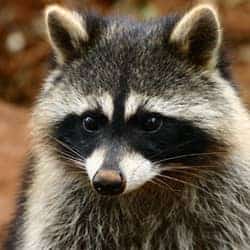There is a good chance that wherever you live, you have had the opportunity to see a squirrel or two in your time. You might even have been visited by skunks, raccoons, rabbits and maybe even the occasional possum. You might look forward to these backyard visitors every once in a while as they forage in the grass and trees around your home looking for their next meal, while you quietly take pictures of them from the safety of your living room window.

Unfortunately, not all of these visitors just want the birdseed that you have scattered or the apples from your tree. As the weather cools, all of these furry, little creatures also need to seek shelter from the harsh winter weather and your house is just as cozy to them as it is to you. It may not sound like such a big deal but many of the forest animals that frequent your yard are extremely destructive. Besides having the possibility of carrying disease transmitting fleas and ticks, many of them are possible rabies carriers. A surprised or sick animal is quite likely to bite, causing serious consequences to pet and human family members alike. Wild animals, no matter how small, can cause damage to your roof or chimney, while they look for shelter. They can also chew on wires, make nests in attics and crawlspaces as well as invade kitchens, causing a serious mess that you won't soon forget.
There are ways that you can prevent your home from becoming a safe haven for our woodsy friends. First, make sure that bird feeders and pet food are not stored outside. An easy meal is a big attraction for wild animals. Also, if you have fruit or nut trees, make sure that what falls off gets raked up. Always keep trash picked up and stored in tightly covered containers and hauled away at least once a week. You will want to make sure that you discourage an easy water source around your home as well by fixing any leaking pipes or clogged drains.
Next, inspect the outside of your house for pest friendly entrance points. That crack in a vent might not seem like a big deal but did you know that a mouse can fit through a hole the size of a dime? Crazy, I know! It won't take much more of an opening for a squirrel to fit through. We highly suggest replacing cracked or broken screens and vents around the windows, doors and chimneys of your home. Always make sure that any cracked mortar or weather stripping is repaired or replaced. Any clutter in your garage or shed can easily become a nesting spot for a wild animal. If you can keep storage containers closed tightly and get rid of what isn't necessary, you will reduce possible hiding spots. Consider getting rid of brush piles and making sure that stored wood is at least 20 feet from the home.
Lastly, you might want to consider having your home inspected from time to time by a wildlife control expert, like Rottler. They can point out entrance points that you might have missed and can remove any wildlife who might have moved in without you realizing it.

